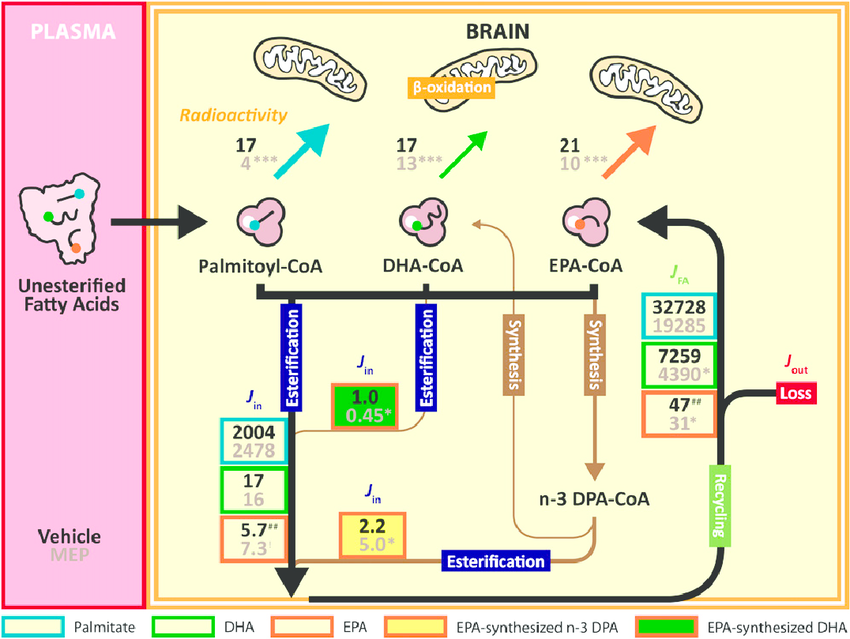Animal and epidemiological studies support an association between docosahexaenoic acid (DHA) found in fatty fish, seafood, and supplements and reduced risk of Alzheimer’s disease (AD). DHA is a top supplement recommended by Dr. Dale Bredesen, author of the groundbreaking book The End of Alzheimer’s.
DHA is an essential Omega-3 fatty acid that comprises 30% of the fats in the human brain! DHA is mainly found in the gray matter of the brain. DHA influences the structure, function, and signaling of the brain. Supplementation with DHA in a mouse model was found to reduce amyloid-b plaque accumulation. https://pubmed.ncbi.nlm.nih.gov/17442823/
However, some studies show that DHA found in fish oil supplements does not reduce the risk of AD or improve symptoms in individuals with the APOE4 allele. Carriers of APOE4 are at higher risk for AD. Is there a connection to the form of DHA consumed and the APOE variant?
Some of the DHA in fish and seafood is in a phospholipid form, whereas fish oil supplements do not contain phospholipids. According to an interesting article by Rhonda Patrick, this influences how DHA is metabolized and how it is transported across the Blood Brain Barrier. “I propose that APOE4 carriers have impaired brain transport of free DHA but not of DHA-lysoPC, as a consequence of a breakdown in the outer membrane leaflet of the BBB, putting them at increased risk for AD. Dietary sources of DHA in phospholipid form may provide a means to increase plasma levels of DHA-lysoPC, thereby decreasing the risk of AD.” doi: 10.1096/fj.201801412R
In other words, she postulates that APOE4 carriers will respond better to DHA in phospholipid forms because APOE4 carriers may have impaired transport of free DHA across the Blood Brain Barrier. If you can’t get DHA into the brain one way, then take the other way. Where can you find phospholipid rich DHA? Fish, fish roe, and krill oil are rich sources! In supplemental form, krill oil is your best bet.

This is an example of a phospholipid
[photo courtesy of: Marc-Olivier Trepanier]
I am NOT suggesting that you give up your DHA fish oil supplement based on this article. DHA is associated with reducing risk of AD and improving cognition in many studies. However, if you have done a genetics profile and know that you are an APOE4 carrier, then it might be a good idea to eat more fish and/or add a krill oil supplement in addition to your DHA fish oil supplement.
